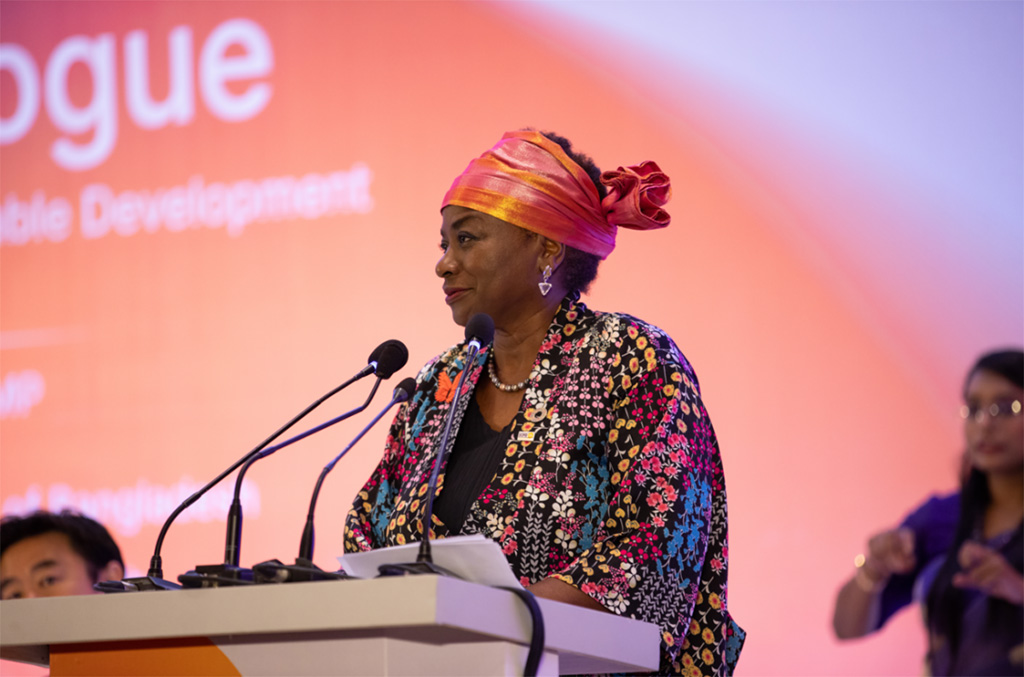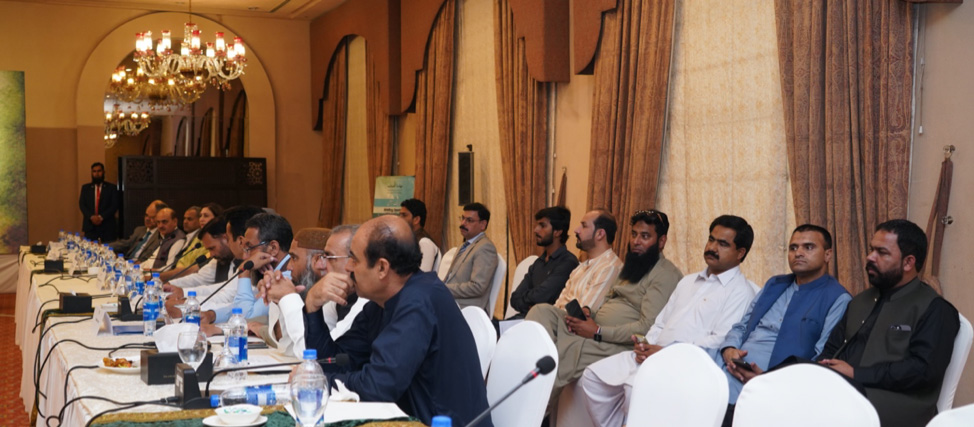The dialogue also brought more than 200 participants including youth leaders to discuss achieving sustainable and equitable development in a world more demographically diverse than ever
By: Asim Nawaz Abbasi
BANGLADESH, Dhaka: In Dhaka today, the UNFPA, along with the governments of Bangladesh, Bulgaria, and Japan, kicked off a two-day global dialogue. This event addresses the urgent need for rights-based policies to manage the diverse pace and direction of demographic changes worldwide. Countries are increasingly dealing with climate change, urbanization, digitalization, and migration. Some regions face rapid population growth, while others see a decline. The dialogue emphasizes adapting to these trends to ensure sustainable development.
Reaffirming the need to realize gender equality and women’s rights to reproductive decision-making and bodily autonomy, the opening session of the global dialogue called for sustainable investment in the human and economic potential of all, particularly of youth, older persons, and hard-to-reach communities.
Officially opening the dialogue, UNFPA Executive Director, Dr. Natalia Kanem said: “In a world grappling with conflicts, record humanitarian displacement, climate change, migration, rising intolerance, and a surge of misinformation and disinformation, it is evidence- and rights-based decisions that will shape the future of reproductive health and rights.”
Her Excellency Sheikh Hasina, Prime Minister of Bangladesh, said: “From the outset, Bangladesh remained staunchly committed to implementing the ICPD Programme of Action. We would like to see UNFPA and other development partners, geared at taking further effective measures to enable all countries, especially the developing, least developed, and small island states, to achieve the ICPD goals and targets. It remains critical to focus on strengthening international cooperation to address the well-being and protection of all the peoples around the world, especially mothers, children and the elderly, from health risks emanating from climate impacts and other factors.”
This global dialogue is the second of a series of dialogues on the topics of youth, demographic diversity, and technological change that are being organized this year to mark the 30th anniversary of the International Conference of Population and Development (ICPD). Thirty years ago, the ICPD launched a global programme of action to place people’s rights at the heart of sustainable development, and these dialogues will be crucial moments to reinvigorate the promise beyond 2024, taking into account current emerging trends.
Bringing together experts from governments, academia, civil society, the private sector and United Nations entities, this global dialogue on demographic diversity will delve into a forward-looking vision of the world’s future, imagining societies that proactively engage with and adapt to demographic changes. The dialogue will cover a range of thematic discussions, including:
- The impact of megatrends and migration on global population trends;
- The role of technology and data in planning for demographic changes;
- Promoting green, diverse, and inclusive cities;
- Demographic diversity, mobility, and the climate crisis;
- Intergenerational wellbeing and healthy ageing;
- Promoting resilience within rural communities.
Over the course of the two days, participants will engage in substantive conversation over demographic developments on health systems, pensions, urban development, and economic growth, including how demographic change will affect the nature and demand for health-care services, as well as the care economy, labour practices, education needs and social support, all critical to achieving global goals and sustainable development.



